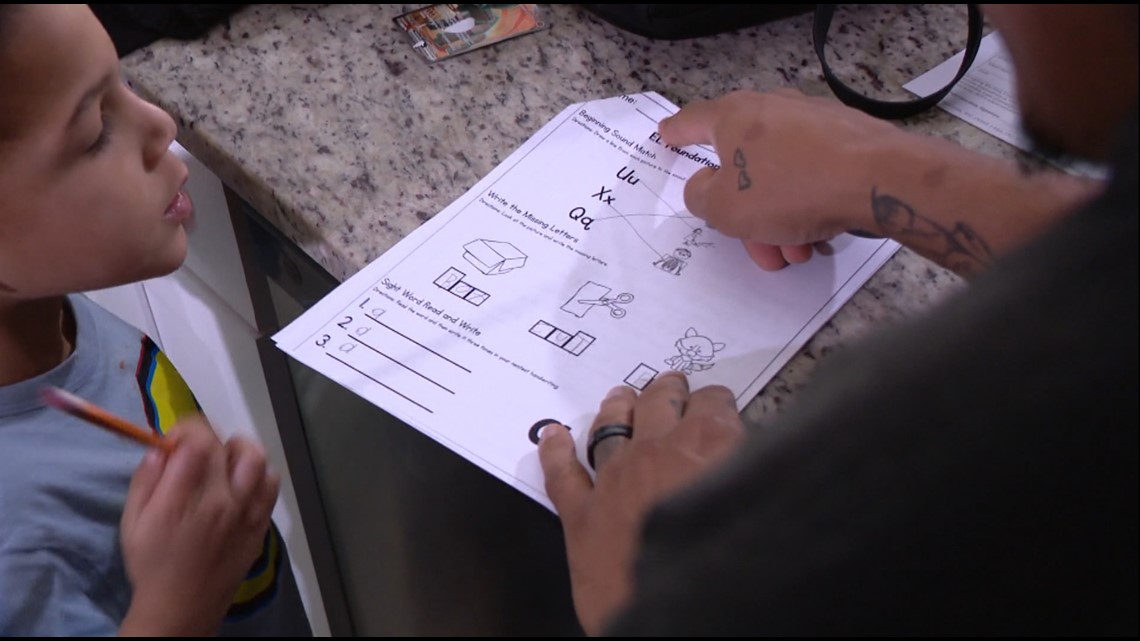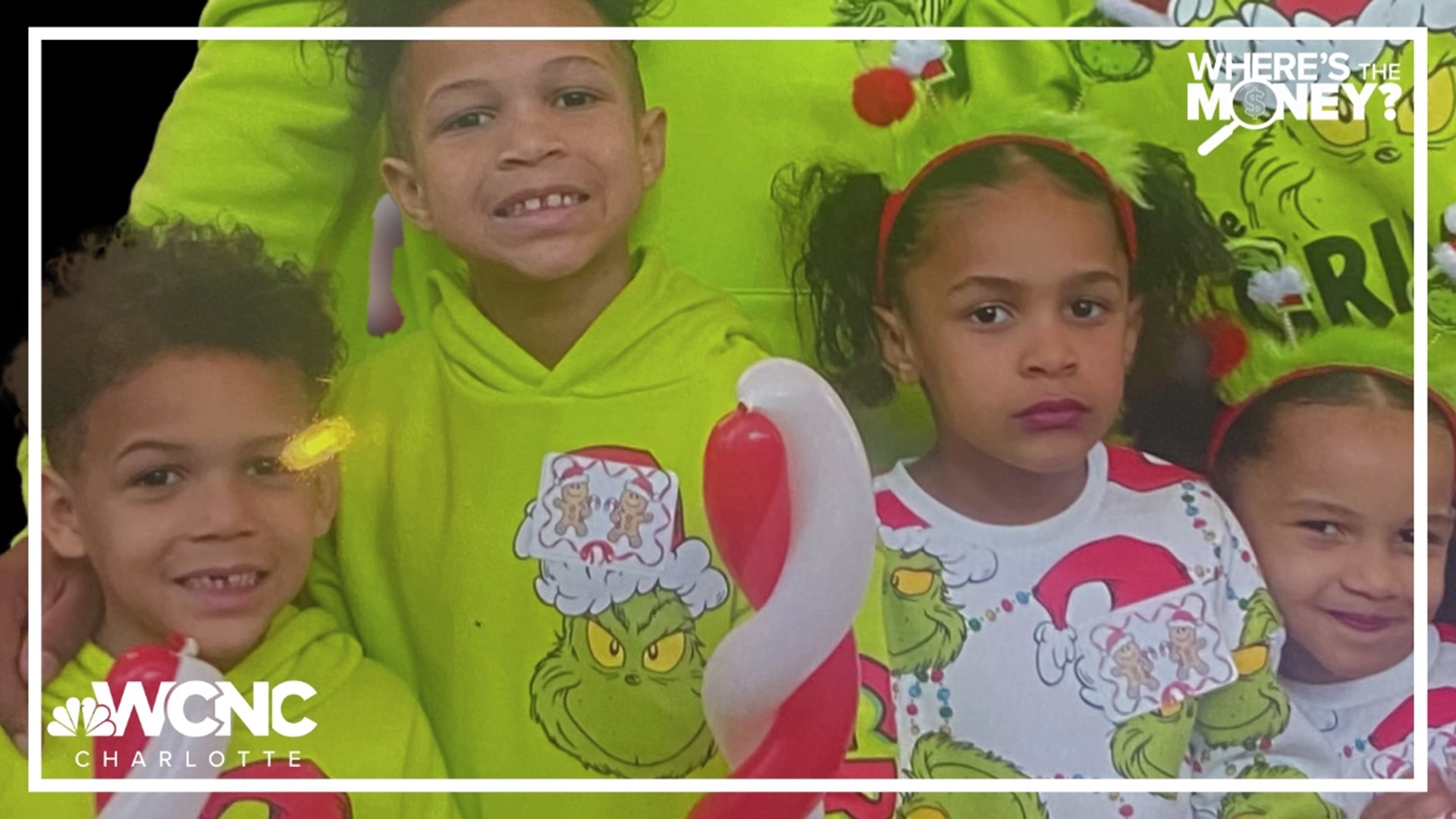CHARLOTTE, N.C. — A Charlotte family is pushing for change in the way their kids are taught at school. The students are deaf, and their parents told WCNC Charlotte that Charlotte-Mecklenburg Schools is forcing them into a life of isolation because of the way they’re learning.
Up until a few years ago, there were options for deaf kids in Mecklenburg County, but now they’re taught in a way parents say is setting them up for failure.
Afternoons in the Alexander house look a little different than most. There’s all the hub-bub of afterschool energy, but not a lot of noise. Both parents are deaf, as well as four of their seven kids. Three of the kids who are deaf are at University Meadows Elementary School where they are mainstreamed, in a class with all hearing kids, and they have an interpreter.
"It's nice for my deaf children to be in a challenging environment where they’re stimulated and around hearing children but there isn’t communication and association with other deaf children besides their siblings," Carolyn Alexander said. "They need to be around other deaf children who are like them."
WCNC Charlotte is always asking "where's the money?" If you need help, reach out to WCNC Charlotte by emailing money@wcnc.com.
WCNC Charlotte worked with an interpreter to do this interview, and Carolyn Alexander shared how frustrated she is with the way her kids are taught.
"So all day long, the only person they’re interacting with is the interpreter -- they don’t get to learn vicariously though other students, they don’t get the opportunity to help other students," she said. "They don’t get to talk about what’s cool and what’s not cool."


She said the only people who know sign language at her kids' school are the interpreters assigned to each of them.
It hasn’t always been this way.
Until 2016, CMS had a special program for deaf students in Mecklenburg County, in which the kids were taught under one roof at Cotswold Elementary School. In fact, that’s where Carolyn Alexander went to school, and it’s what she wanted for her children.
Donna McCord Smolik is a deaf advocate who grew up in Charlotte and sent her own kids to Costwold Elementary School.
"To see this happening and hear from the interpreters ... the hearing students are in such, for them, an integrated classroom, but it is not an integrated classroom for the deaf student," Smolik said. "They’re placed on an island, and all of the hearing people around them who don't know any different think they’re doing the right thing because they've got them so integrated that they've erased them. And there they are, sitting alone, and it just breaks my heart."
WCNC Charlotte checked with the state and learned every North Carolina school district decides how it wants to approach teaching deaf students.
The Wake County Public School System, the school district most comparable in the state to Charlotte-Mecklenburg Schools, told WCNC Charlotte most of the students who are deaf or hearing impaired in their district attend their home schools with an interpreter if needed, but Wake County also offers regional programs or “cluster programs” for deaf students at three schools.


WCNC Charlotte also checked in with the National Association of the Deaf (NAD) which said, as of 2020, 70% of deaf students were mainstreamed across the country but pointed to the 2004 federal Individuals with Disabilities Education Act (IDEA), which requires options for deaf children including “cluster schools that serve larger groups of deaf students at selected schools.”
"Deaf schools are an important placement opportunity mandated by IDEA that can be very beneficial for deaf children ... in providing education and community," a spokesperson for NAD said.
"Right now, all the deaf children are dispersed, and it's hard for deaf children to be around other deaf children."
The state gives each school district an extra $5,600 per deaf student to make sure they have the tools they need, but Carolyn Alexander said money meant for her kids is being lumped in with money for all kids with all types of disabilities.
"To use the money that is allocated for the deaf student, and then put it into a larger budget that’s paying for ramps and other forms of access isn’t fair," Carolyn Alexander said. "That money was allocated for the deaf students."
WCNC Charlotte asked CMS specifically about this claim; the district would only say “the funding formula is complex however it is important to note that any identified needs are funded.”
"It makes me wonder about their future," Carolyn Alexander said. "I see a lack of resources. I see a lack of education for the deaf children. I see them not being set [up] for success."
The Alexander family is working with several people in the Charlotte region exploring the possibility of starting a charter school for deaf students.
Contact Michelle Boudin at mboudin@wcnc.com and follow her on Facebook, X and Instagram.
WCNC Charlotte's Where's The Money series is all about leveling the playing field in the Carolinas by helping others and breaking down barriers. WCNC Charlotte doesn't want our viewers to be taken advantage of, so we’re here to help. Watch previous stories where we ask the question “Where’s the Money” in the YouTube playlist below and subscribe to get updated when new videos are uploaded.

